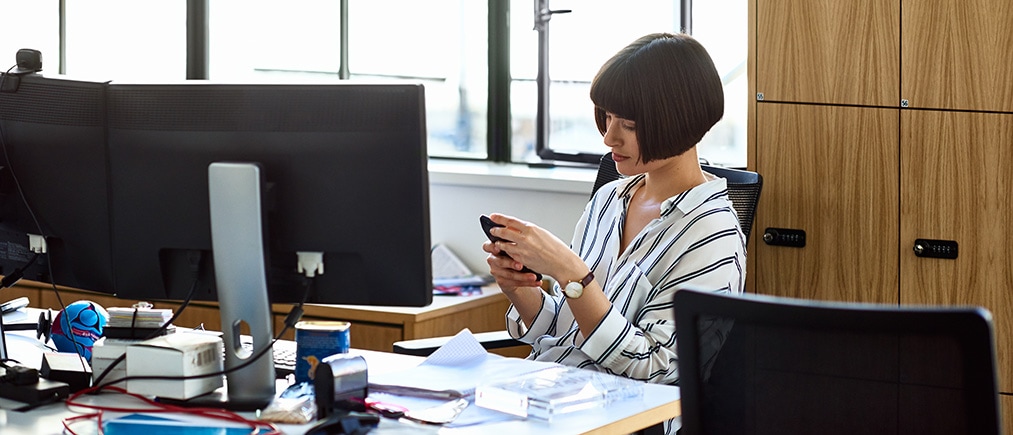The constant buzzing and pinging of messages, emails and alerts can be so distracting. And before you know it, you've wasted hours of your day mindlessly perusing Facebook or watching YouTube. The result is that tasks take longer to finish, your to-do list never ends and you constantly feel stressed. Sukhi Wahiwala, an entrepreneur, mentor and international TED speaker, shares how to take control of your time.
Top causes of distraction
'If you tell people you're too busy, imagine the response you will have with anything that comes your way in the first place. Too busy says you don't have enough time for the success that is coming your way,' Sukhi says. 'What we say can be what we become.' Yet without always realising it, we waste so much time procrastinating. The reason? Too many distractions.
Sukhi's research shows that emails are the biggest distraction, followed by phone calls, and texts messages. These can quickly interrupt your flow, making it tough to regain your focus and complete the task. Other common distractions are news alerts and social media. 'The outcome of these distractions is a lack of motivation,' says Sukhi.
7 steps to stop procrastination
The average person is interrupted every 40 seconds when working in front of their computer and it can take over 20 minutes to re-focus. Here's Sukhi's 7-step process called 'Daily Focussed Time', for gaining back control of your time.
- Start with a clear question that encroaches a decision, task or challenge at hand.
- Write it out as a big list, using pen and paper. This helps you to remember it.
- Select the top 10 tasks that need doing today. Write them on a new piece of paper.
- Reduce the list to the top 5 tasks. Take a short break and when you come back, pick up the list again.
- Now reduce the list down to the 3 most important tasks.
- Order them by priority.
- Finally, do it now. Not all three, just the first one. 'Consciously we can only think and align three things,' says Sukhi. 'Complete one task, then do the second and third.'
Once you've completed three tasks, you create another three until you've done them all, Sukhi says. 'I enhance the process by creating a space around myself where I don't get distracted, so just my laptop and my desk,' he says. 'I started doing things quicker, which meant I could get most of my work done in the morning and I had my afternoon free to slow my brain down and spend more time with my family and doing the stuff that was more important to me.'
Key Takeaways
- Constant distractions such as emails and messages are a productivity killer you need to be aware of.
- Focus your mind by breaking down task lists into batches of three.
- Dedicate specific time for checking emails or social media, so that you don't get distracted by them as you work.



